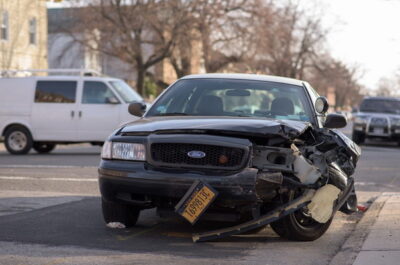The European Commission has issued guidelines warning that under EU law road charging schemes must not discriminate against foreign drivers. The aim is to assist Member States who are considering introducing new charging schemes for private cars. Vice-President Siim Kallas said: "Non-discrimination is a fundamental right under EU law. It must be…

The European Commission has issued guidelines warning that under EU law road charging schemes must not discriminate against foreign drivers. The aim is to assist Member States who are considering introducing new charging schemes for private cars.
Vice-President Siim Kallas said: "Non-discrimination is a fundamental right under EU law. It must be as easy for a French or British citizen to drive across Slovenia or Belgium as it is for a resident driver. Road charging systems must be transparent and fair to all."
The current situation
Seven Member States — Austria, Bulgaria, the Czech Republic, Hungary, Romania, Slovakia and Slovenia — have time-based "vignette" charging schemes for private cars. Belgium is current working to introduce one. The Netherlands and Denmark have discussed introducing road charging systems, including for private cars.
The EU’s "Eurovignette directive" sets out a transparent list of costs that can be charged for heavy goods vehicles, such as the cost of the infrastructure and externalities such as air pollution and noise. For private cars, there are no such rules. However, the basic Treaty provisions prohibiting any discrimination on grounds of nationality apply.
Over the years, road charging schemes for private cars have given rise to numerous complaints to the Commission and some have fallen outside EU rules. In 1996, Austria had to modify its plans for a vignette system after the European Commission said that offering only a yearly pass would be unfair to foreign motorists. In 2008, the Commission launched infringement proceedings against Slovenia because it was only offering half-year vignettes. The authorities introduced weekly passes.
The Commission guidelines
The Commission wants to guide Member States on what constitutes a non-discriminatory charging scheme.
1. The Commission expresses a clear preference for distance-based toll systems as being inherently fairer and more effective in sending price signals than a time-based "vignette sticker" system. If they are not designed carefully, vignette systems are more likely to cause unwarranted problems for foreign drivers who are simply passing through a country.
2. If a time-based "vignette system" is used, then certain conditions must be met.
There must be:
(a) Minimum short term vignettes. There must be, as a minimum, weekly, monthly and yearly "vignettes" available to residents and non-residents. Clearly, the shortest term vignettes are most likely to be used by non-residents.
(b) An acceptable "average daily price ratio": The average daily price ratio shows the average price, expressed in equivalent daily price, that a non-resident pays (using the shortest term vignette e.g. a weekly vignette) compared to a resident using the longest one (e.g. an annual vignette).
Based on the schemes currently in place, the average daily price a non-resident pays can vary from 2.5 to up to 8.2 times the price a resident pays. This would be considered the upper acceptable limit. To compare, the maximum ratio permitted by the EU’s "Eurovignette directive" for heavy goods vehicles is 7.3.

There can be objective reasons for higher short-term vignette charges – such as higher administrative costs. But these costs must be justifiable and proportionate.
(c) Clear information on user charges should be easily available to non-residents. Non-residents should be provided with a range of options to pay, including easily accessible pay stations at the border as well as by phone and websites. Enforcement must not only focus on border areas.
Background – Road charges
It is for each Member State to decide if they want to introduce road charges, for which vehicles (if at all), and how they will collect the charge. To date, some Member States have chosen to use a distance-based road toll system, some use a time-based "vignette" sticker system. Others do not charge at all.
Theodore is the Co-Founder and Managing Editor of TravelDailyNews Media Network; his responsibilities include business development and planning for TravelDailyNews long-term opportunities.





















































































































































































